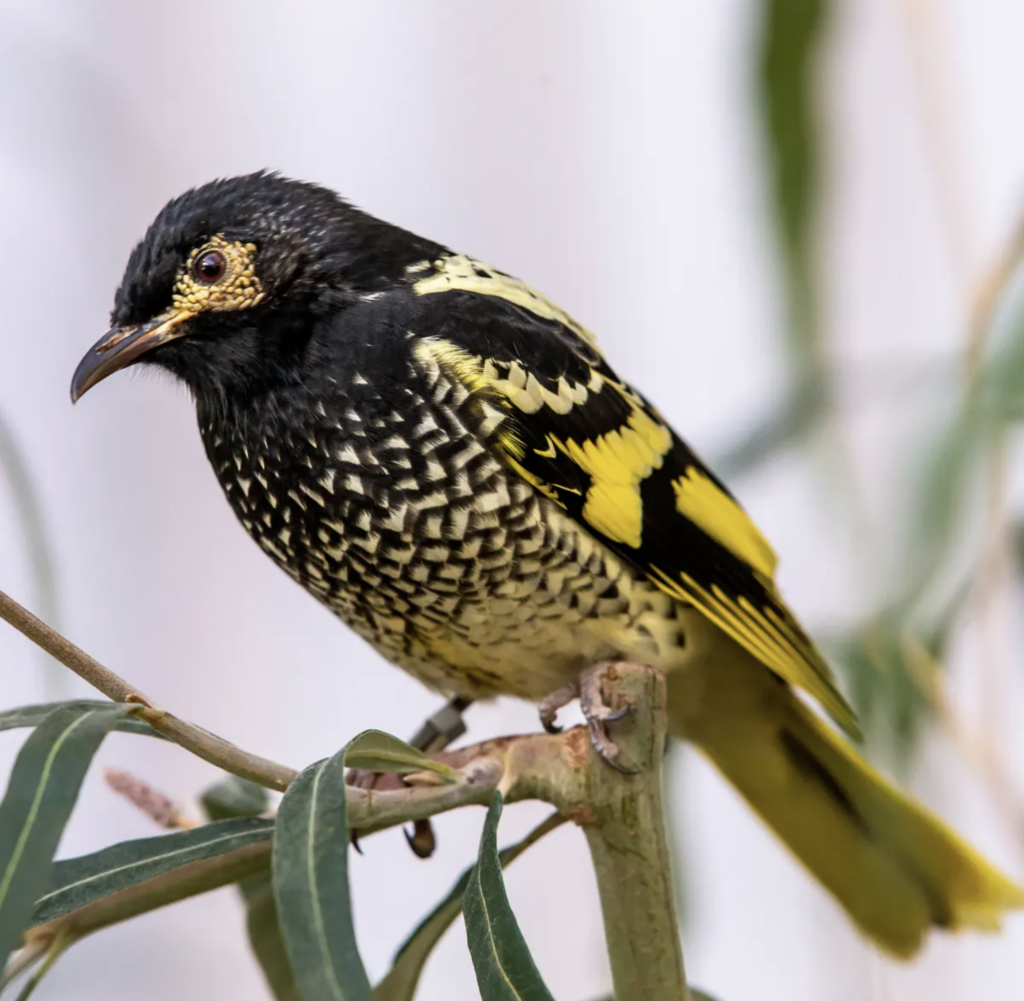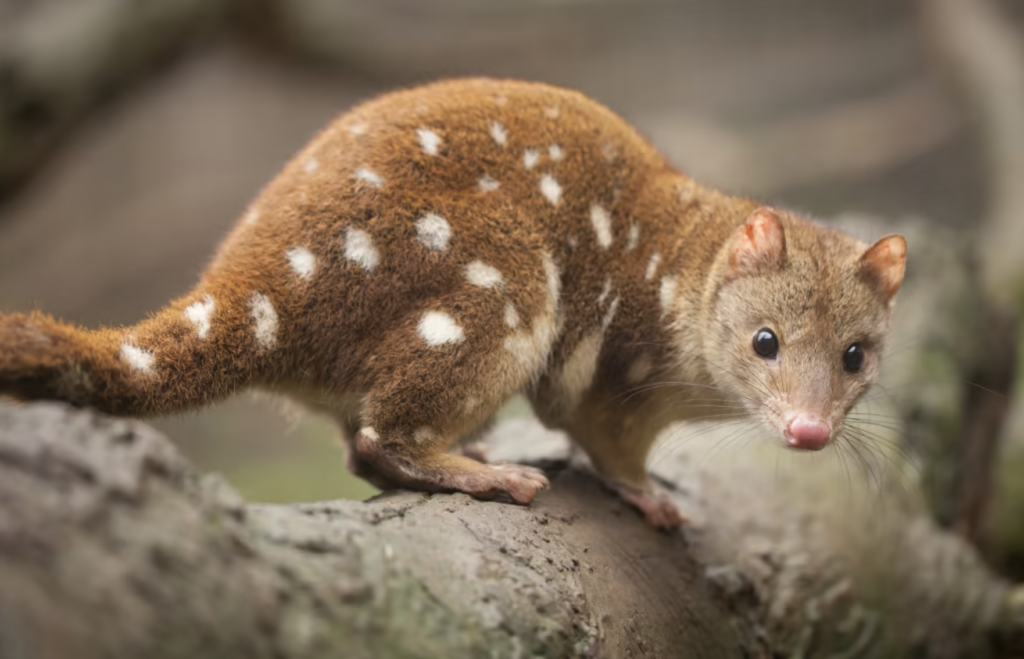The window for public comment on the Queensland-Hunter Gas Pipeline closed on Friday, 8th December 2023. Unfortunately, you can no longer make a submission calling for this decision to be reviewed. You can stay up to date with what happens next by signing up here, or check out the Climate Council’s full submission here for more information.
The Queensland-Hunter Gas Pipeline is a proposed underground pipeline route intended to pipe dangerous, polluting fossil gas between Queensland and the proposed Narrabri Gas Project.
15 years ago, the Federal Government determined that this project would not have any environmental impacts and waved it through for construction. Since then, new information has come to light about the potential impact this project could have on threatened species, like the Regent Honeyeater and Spotted-tail quoll, that have been found living in the area.
Thanks to the efforts of Lock the Gate and local community groups, the Government is right now deciding whether or not to review this decision, and we have the chance to push back and force the project to undergo a full environmental assessment under our national environment law.


Failure to properly assess the Queensland-Hunter Gas Pipeline for its potential impacts on these nationally-listed threatened species would mean failing to properly protect our natural environment, wildlife, and ecosystems from harm. Stopping this pipeline would also disrupt the Narrabri Gas Project, which plans to drill up to 850 gas wells in Northern NSW, and produce even more polluting fossil gas.
But this will only happen if as many people as possible join the push and call for the Queensland-Hunter Gas Pipeline to undergo a new, full environmental assessment that considers all potential environmental damage.
Submissions close Friday, 8th December. Use our simple guide below to make a submission today.
Guide: How to Make a Submission
Making a public submission is quick and easy. There are three questions, and while they might sound a bit tricky, we’ve provided everything you need to know to craft a powerful submission and make your voice heard.
Here’s how you do it:
- Visit the EPBC public comment page to make your submission.
- Enter your details and a title for your comment, such as ‘Review the Queensland-Hunter Gas Pipeline’
- Click YES and use the information we have provided below to answer the three questions on this page.
- Hit Submit, and you’re done!
Submission questions:
Do you consider there is substantial new information available about the impacts the action has, will have or is likely to have on a matter protected under Part 3* of the Environment Protection and Biodiversity Conservation Act 1999 (Cth) (EPBC Act)?
Yes! Substantial new information is now available which demonstrates that the Queensland-Hunter Gas pipeline could have significant environmental impacts on threatened species.
<< READ MORE >>
<< READ MORE >>
- This includes new evidence compiled by Lock the Gate which suggests a number of nationally threatened species have been found in the vicinity of the pipeline corridor since the time of the original decision.
- These include:
- The Regent Honeyeater, which has been upgraded to critically-endangered since 2008, and has any habitat listed as critical for its survival.
- The Spotted-tail quoll, which has also been found to have important habitat in central parts of the proposed pipeline, near Muswellbrook, NSW.
- Sightings of the Booroolong frog are now rare, but the endangered species has been spotted post-2008 near Quirindi, NSW. This is an area that will be impacted by construction of the pipeline.
- There are now multiple records of the Corben’s long-eared bat in the vicinity of the pipeline near Boggabri, New South Wales. This area has also been recognised as a national stronghold for the species.
- 66 hectares of White Box-Yellow Box-Blakely’s Red Gum Woodland and Derived Native Grasslands, an ecologically significant community listed as critically endangered, has been found within the pipeline corridor.
- It’s clear that the development of the Queensland-Hunter Gas Pipeline therefore has potentially significant environmental impacts on a number of critically-endangered and threatened species that have not yet been considered or assessed.
- The protection of these species is a core function of our national environment law. The original decision should be reviewed, and the Queensland-Hunter Gas Pipeline should be required to undergo full and rigorous environmental assessment.
Do you consider there has been a substantial change in circumstances that was not foreseen at the time of the first referral decision and that relates to the impacts the action has, or will have or is likely to have on a matter protected under Part 3* of the EPBC Act?
Yes. A number of threatened species have experienced extreme habitat loss and a significant change in circumstances because of the Black Summer bushfires and climate change.
<< READ MORE >>
<< READ MORE >>
- Since the original decision not to consider the Queensland-Hunter Gas Pipeline a ‘controlled action’ under the EPBC Act, a number of threatened species have experienced extreme habitat loss and a significant change in circumstances because of the Black Summer bushfires, as well as other extreme weather events and sustained ecological pressure from climate change. This has severe implications for their ongoing survival.
- In particular, over the summer of 2019-20, Australia experienced its worst bushfire season on record, where catastrophic fire conditions led to an unprecedented scale of destruction. More than 24 million hectares of land burned, and an estimated one billion animals killed.
- The Australian Government officially named 119 threatened species as having lost at least 30 percent of their habitat throughout these unprecedented fires. Three of these species – the Regent Honeyeater, Spotted-tail quoll, and Greg-headed Flying Fox – are found near the proposed route of the Queensland-Hunter Gas pipeline.
- Any potential impact of the Queensland-Hunter Gas Pipeline on these species – or any other protected matters – must be urgently assessed.
If applicable, provide any other comments on whether you consider there are reasons to revoke the first referral decision and substitute a new decision.
In the 15 years since the first referral decision was made, new information about the severity and consequences of climate crisis, and the scale and pace of action required, has become widely accepted.
<< READ MORE >>
<< READ MORE >>
- Any new or expanded fossil fuel project is out of line with what the science demands to protect a safe, liveable climate. Worsening climate change will have detrimental impacts on the species, places and ecosystems we cherish.
- Yet the Queensland-Hunter Gas Pipeline’s development underpins the viability of the Narrabri Gas Project. Should this new gas project go ahead, it has the potential to add almost 130 million tonnes of harmful carbon emissions to our atmosphere over its lifetime.
- Any new fossil fuel development in Australia is dangerous for our environment, unnecessary for our energy needs, and incompatible with a safe and liveable climate. Allowing this project to continue development will only put further stress on our already vulnerable ecosystems, wildlife, and environment.